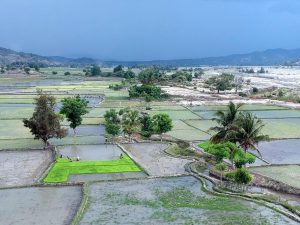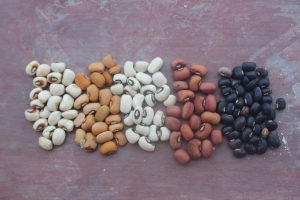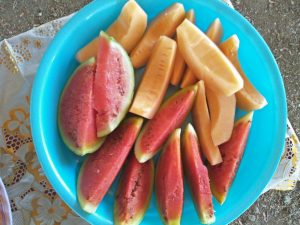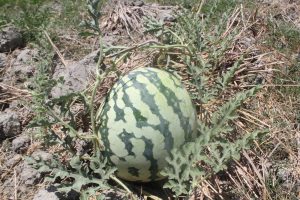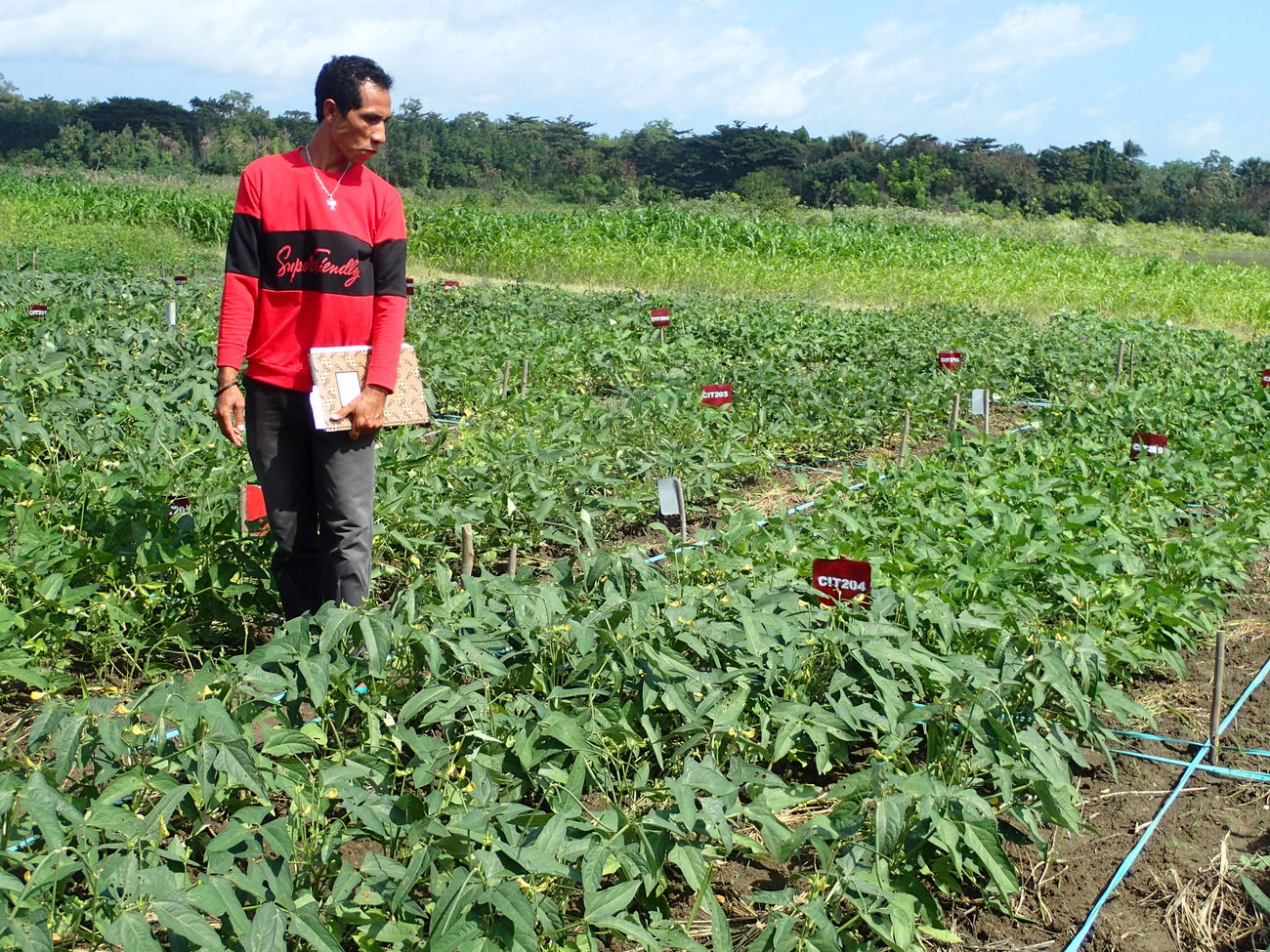The results of Timor-Leste’s first student-led research into intensified farming post-rice harvest have been launched today at a workshop at the National University of Timor Lorosa’e (UNTL), offering novel ways of supporting the diets and livelihoods of rice-farming families.
Research projects were implemented by students from the university’s agronomy faculty and conducted at a new research site in Vermasse, in Baucau municipality, which was launched under the collaborative research partnership between AI-Com and UNTL in November 2017.
Research shared today included results from experiments with organic and inorganic fertiliser treatments on bean crops planted immediately after rice fields are harvested. Previously, families in the flat area of Vermasse would harvest rice once per year, but with an improved irrigation channel they’re able to harvest twice per year. The UNTL research can now explore other opportunities for families to grow different crops after rice and maximise the output of their land, improving the quality and quantity of household diets.
In introducing a publication collating all results, the Rector of UNTL, Professor Francisco Miguel Martins, reiterated the importance of the agriculture science and innovation to the developing agriculture in Timor-Leste. He wrote in the publication’s introduction that he was proud of the students’ work and appreciative of the funding and technical support provided by the Government of Australian through AI-Com.
“I’m proud and extremely appreciative of the teachers and students from the UNTL agronomy department who conducted this research about agriculture system intensification through alternative planting after rice harvest,” he wrote.
“The results from this research published are the first research proceedings published by UNTL in the area of agronomy in Timor-Leste. I hope that these first procedures will assist students, academia, extension workers and farmers in Timor-Leste who want to understand the challenges and opportunities in the area of agriculture.”
He added that he hoped farming families in Vermasse can now diversify their produce to secure family incomes.
Since its launch, more than 30 students have and are conducting research at the Vermasse research site, offering opportunities for intensive, practical learning the students otherwise wouldn’t receive in their theoretical courses at the university’s Dili campus, and enabling UNTL to contribute to the development of Timor-Leste’s body of agronomy knowledge to better support farming families.
